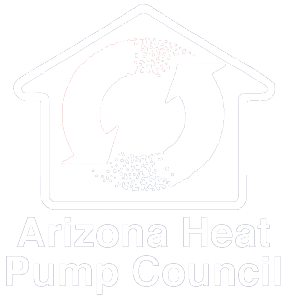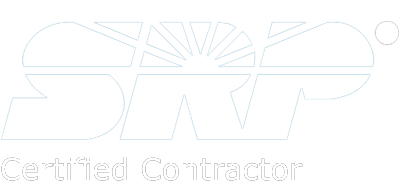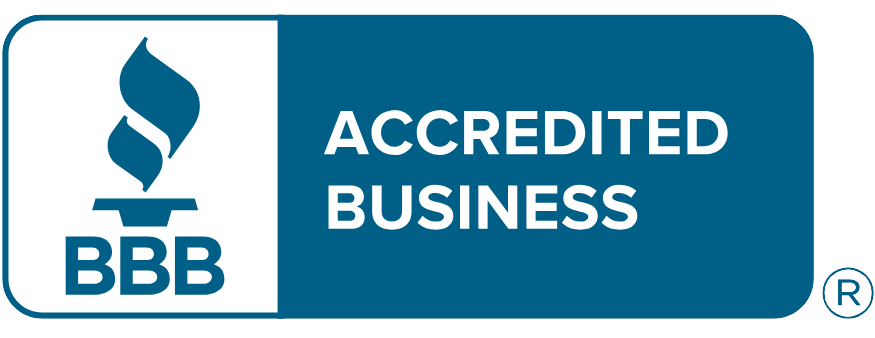Your Phoenix AC might need immediate repair if you notice these five signs: unusual noises like clicks or bangs, weak or inconsistent airflow, sudden spikes in energy bills, frequent cycling on and off, and unpleasant odors during operation. These symptoms can indicate various issues, from loose components to refrigerant leaks. Don’t ignore these warning signs, as they can lead to more severe damage and reduced efficiency in Phoenix’s extreme heat. Regular maintenance and prompt attention to these indicators can prevent costly breakdowns and guarantee your comfort. Understanding the specifics of each sign will help you take timely action and maintain your AC’s performance.
Key Takeaways
- Unusual noises like clicks, bangs, or hissing from your AC indicate potential issues requiring immediate attention.
- Weak or inconsistent airflow suggests problems ranging from clogged filters to more serious mechanical issues.
- A sudden spike in energy bills, especially increases of 10% or more, may signal AC inefficiency.
- Frequent cycling on and off, more than 5 times per hour, indicates potential thermostat or refrigerant problems.
- Unpleasant odors, such as musty, chemical, or burning smells, when the AC is running require prompt professional inspection.
Unusual Noises From Your AC
One of the most telling signs that your AC needs repair is the presence of unusual noises during operation. These sounds can range from subtle clicks to loud bangs, each indicating a specific issue. Common causes of noises include loose components, worn bearings, or debris in the system. It’s essential to address these sounds promptly to prevent further damage and guarantee your safety.
When noise troubleshooting, pay attention to the type and location of the sound. Rattling or buzzing may indicate loose parts, while screeching or squealing often suggests belt problems. Hissing noises could signify refrigerant leaks, which require immediate professional attention due to potential health risks. Clicking sounds at startup might point to electrical issues, while banging or thumping could mean a serious compressor problem.
Don’t ignore these auditory warnings or attempt DIY repairs, as improper handling can lead to more severe damage or safety hazards. Instead, contact a licensed HVAC technician to diagnose and resolve the issue. Regular maintenance can help prevent many of these noises and extend your AC’s lifespan, ensuring peak performance and safety in Phoenix’s extreme heat.
Weak or Inconsistent Airflow
Despite proper temperature settings, weak or inconsistent airflow from your AC vents signals potential issues that require attention. Several factors can contribute to this problem, ranging from simple maintenance needs to more serious mechanical failures.
First, check your air filter. A clogged filter restricts airflow, forcing your system to work harder and potentially leading to breakdowns. Replace or clean your filter regularly to maintain ideal performance. Next, inspect your vents for obstructions or closed dampers that might impede airflow.
If these simple fixes don’t resolve the issue, you may have more complex problems:
| Issue | Cause | Action |
| Frozen evaporator coil | Low refrigerant, dirty coil | Professional inspection |
| Leaking ducts | Damaged or disconnected ductwork | Duct sealing or replacement |
| Blower motor malfunction | Worn bearings, electrical issues | Motor repair or replacement |
| Compressor failure | Age, overheating, electrical problems | System evaluation, possible replacement |
Duct issues can greatly impact airflow. Leaks or damage in your ductwork can cause cooled air to escape before reaching your living spaces. A professional inspection can identify and resolve these problems, improving your system’s efficiency and your home’s comfort.
Don’t ignore weak airflow, as it may indicate more serious issues that could lead to system failure or safety hazards.
Rising Energy Bills
While weak airflow can indicate AC problems, another telltale sign of system issues is a sudden spike in your energy bills. If you’ve noticed a significant increase in your monthly energy costs without a corresponding rise in usage, your AC unit may be struggling to maintain efficiency. This inefficiency often stems from mechanical issues or reduced cooling capacity, forcing your system to work harder and consume more power.
To determine if rising bills are due to AC problems, compare your current energy consumption to previous years’ data for the same period. Look for unexplained increases of 10% or more. Additionally, check your AC’s energy efficiency ratio (EER) against its rated performance. A lower EER indicates decreased efficiency and potential repair needs.
Implement these maintenance tips to improve energy efficiency: regularly replace air filters, clean condenser coils, and ascertain proper insulation around ductwork. If high bills persist despite these efforts, consult a professional technician to diagnose and address underlying issues. Prompt attention to rising energy costs can prevent further damage to your AC system and ascertain your home remains comfortably cool without compromising safety or breaking the bank.
Frequent Cycling On and Off
In addition to rising energy bills, frequent cycling on and off of your AC unit is a clear indicator that repairs may be necessary. This behavior, known as short cycling, can stem from various issues, including thermostat problems or refrigerant leaks. To identify if your AC is short cycling, observe its operation closely.
| Normal Cycling | Short Cycling |
| 2-3 cycles/hour | 5+ cycles/hour |
| 10-15 min on | 5 min or less on |
| Even temperature | Temperature fluctuations |
| Consistent airflow | Intermittent airflow |
| Quiet operation | Frequent starting sounds |
If you notice short cycling, it’s essential to address the issue promptly. Thermostat issues may involve faulty wiring or improper placement, causing inaccurate temperature readings. Refrigerant leaks can lead to inadequate cooling and system strain. Both problems can result in decreased efficiency and potential system damage if left unattended.
For your safety and to prevent further damage, avoid attempting repairs yourself. Instead, contact a licensed HVAC technician to diagnose and resolve the issue. They’ll have the necessary tools and knowledge to safely handle refrigerants and electrical components, ensuring your AC operates efficiently and reliably in Phoenix’s extreme heat.
Unpleasant Odors When Running
Unpleasant odors emanating from your AC system can signal various issues that require immediate attention. If you notice a musty smell when your AC runs, it’s likely due to mold growth within the unit. This occurs when moisture accumulates in the evaporator coils or drain pan, creating an ideal environment for mold and mildew. Not only does this affect your air quality, but it can also pose health risks to you and your family.
A pungent, chemical-like odor might indicate refrigerant leaks. Refrigerant is essential for your AC’s cooling process, and any leaks can greatly reduce its efficiency. More importantly, exposure to refrigerants can be harmful to your health and the environment. If you suspect a refrigerant leak, turn off your AC immediately and contact a professional.
A burning smell could signify electrical problems or overheating components. This is particularly dangerous as it may lead to fire hazards. In such cases, shut off your AC system and call for emergency repair services. Remember, ignoring these odors can result in more severe damage to your AC and potential safety risks. Always prioritize your safety and address these issues promptly to guarantee your AC functions efficiently and safely.
Frequently Asked Questions
How Often Should I Have My AC Professionally Serviced?
You should have your AC professionally serviced annually to guarantee peak performance and safety. Regular maintenance frequency improves efficiency, extends system lifespan, and prevents costly breakdowns. Professional servicing benefits include thorough inspections and expert adjustments you can’t perform yourself.
Can I Replace My Ac’s Air Filter Myself?
Yes, you can replace your AC’s air filter yourself. Choose the correct filter type for your system. Follow safety precautions and consult your manual for specific instructions. Clean or replace filters regularly to maintain efficiency and air quality.
Is It Normal for My AC to Produce Water During Operation?
Yes, it’s normal for your AC to produce water during operation. This condensation results from humidity removal. However, excessive water accumulation may indicate issues. Monitor humidity levels and guarantee proper drainage to prevent safety hazards or system damage.
What’s the Average Lifespan of an AC Unit in Phoenix?
Time flies when it comes to AC lifespan in Phoenix. You’ll typically get 10-15 years from your unit. Weather impact can shorten this, so maintain it regularly. Replace older systems to guarantee safe, efficient cooling.
How Can I Improve My Ac’s Energy Efficiency Without Replacing It?
You can improve your AC’s energy efficiency by regularly cleaning filters, sealing ductwork, using a programmable thermostat, and maintaining proper insulation. These energy-saving tips enhance cooling performance without replacement, ensuring safe and cost-effective operation of your system.
Conclusion
Don’t ignore these warning signs from your AC system. Like a car’s check engine light, they’re alerting you to potential problems. Act promptly to prevent costly breakdowns and guarantee your comfort during Phoenix’s scorching summers. Schedule a professional inspection if you’ve noticed any of these issues. Regular maintenance and timely repairs will extend your AC’s lifespan, improve energy efficiency, and maintain peak performance. Don’t wait until your system fails completely—address problems early.






